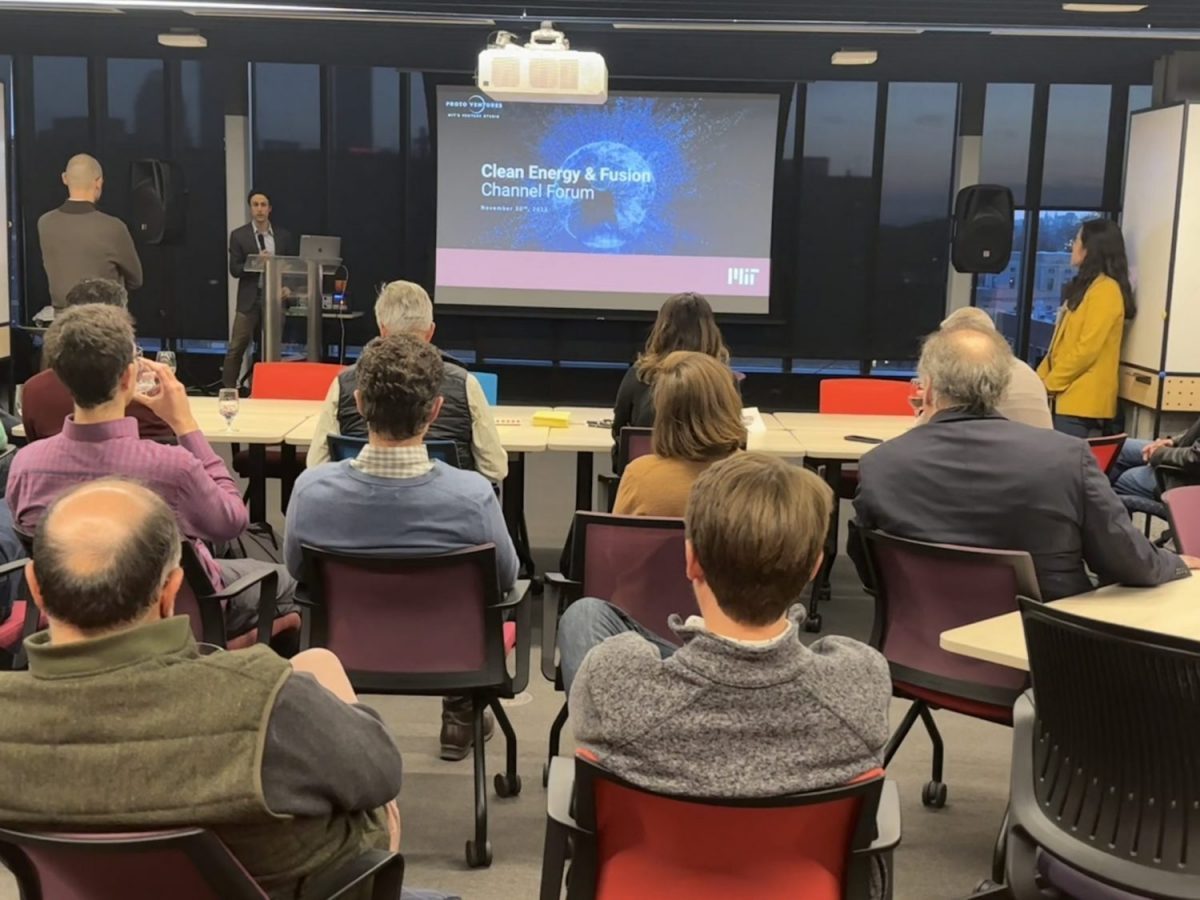
What Do Experts Say About Proto Ventures’ Clean Energy Startup Ideas?
Identifying the most promising clean energy venture ideas for MIT’s venture studio
By Jennifer Bonniwell | Proto Ventures News
January 18, 2024
About 35 experts from all sides of the energy industry gathered to review and assess clean energy venture opportunities from MIT labs as part of the Proto Ventures Clean Energy & Fusion Channel Forum on Thursday, Nov. 30, 2023, at MIT’s Innovation Headquarters.
This was the first forum organized by Proto Ventures Venture Builder David Cohen-Tanugi, who has been embedded within the labs at MIT’s Plasma Science and Fusion Center for the past six months. His goal for the event was to engage experts across the energy sector and identify the most promising venture ideas.
The Channel Forum was the first opportunity for Cohen-Tanugi to present his potential venture ideas to an audience of people outside of MIT. Participants included energy startup founders and industry veterans, investors and VC fund managers, academics, people who work at nonprofits, and others who have a strong interest in the clean energy industry.
“The goal was to get feedback from stakeholders who matter and engage them in discussion about what’s next and what’s interesting in the energy innovation ecosystem,” Cohen-Tanugi said. “I think we did that and more by opening up some really fruitful conversations with people who know this market and this ecosystem really well.”

Ideas and Input
The forum was set up to allow participants to hold smaller discussions about specific venture ideas and give feedback. The participants were sorted into four discussion groups based on what part of the industry they were most interested or involved in. The four groups — defined by Cohen-Tanugi — were Demand Side, Supply Side, Material Inputs, and Moving Energy.
First, the groups brainstormed new venture ideas and filled out cards that said: “Someone ought to build a company that _____.”
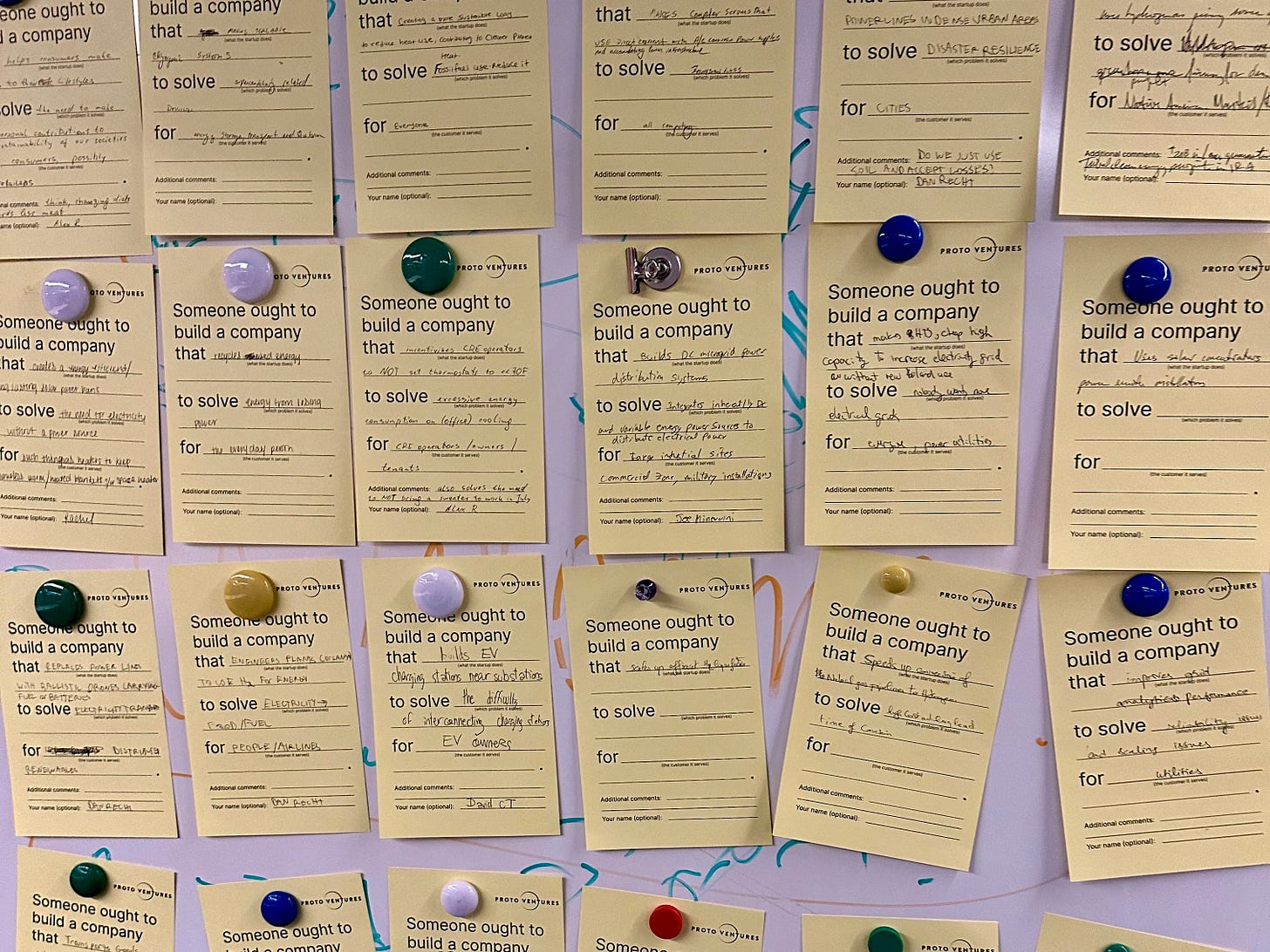
Next, the groups discussed potential opportunities for new clean energy ventures that Cohen-Tanugi and Proto Ventures fellows identified through a combination of market exploration and technology scouting at MIT. Some of these opportunities revolved around tackling a severe and unsolved problem in the energy industry, sometimes with only the earliest elements of a technical solution identified, while others revolved around applying an innovative technology that had been demonstrated at MIT and showed commercial potential for the clean energy sector. Cohen-Tanugi provided a rubric for participants that encouraged input about technology feasibility but also whether an opportunity was worth pursuing even if a solution hadn’t been identified yet.
After the discussions, each group was tasked with presenting two ideas that they liked best and thought deserved further study.
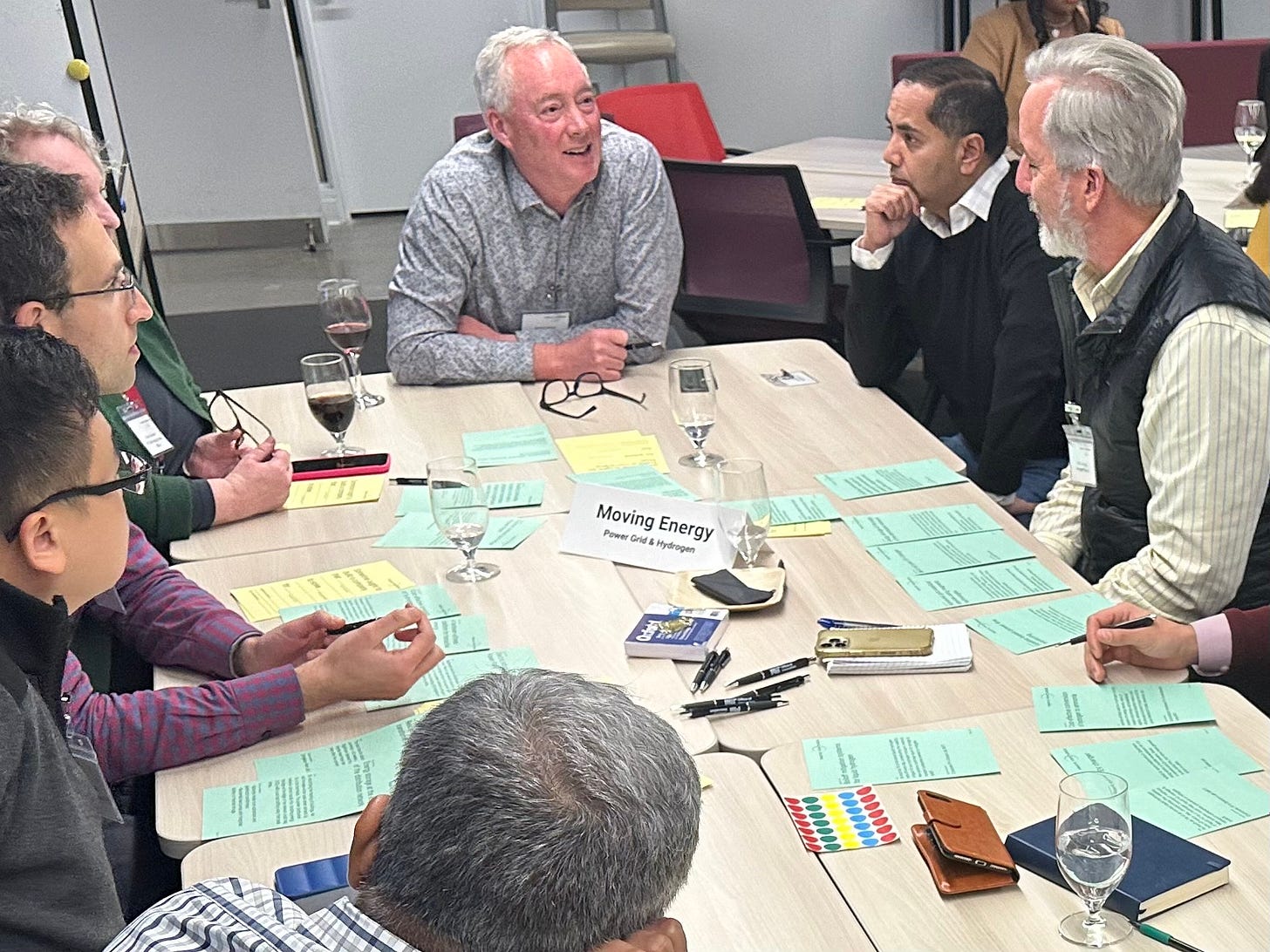
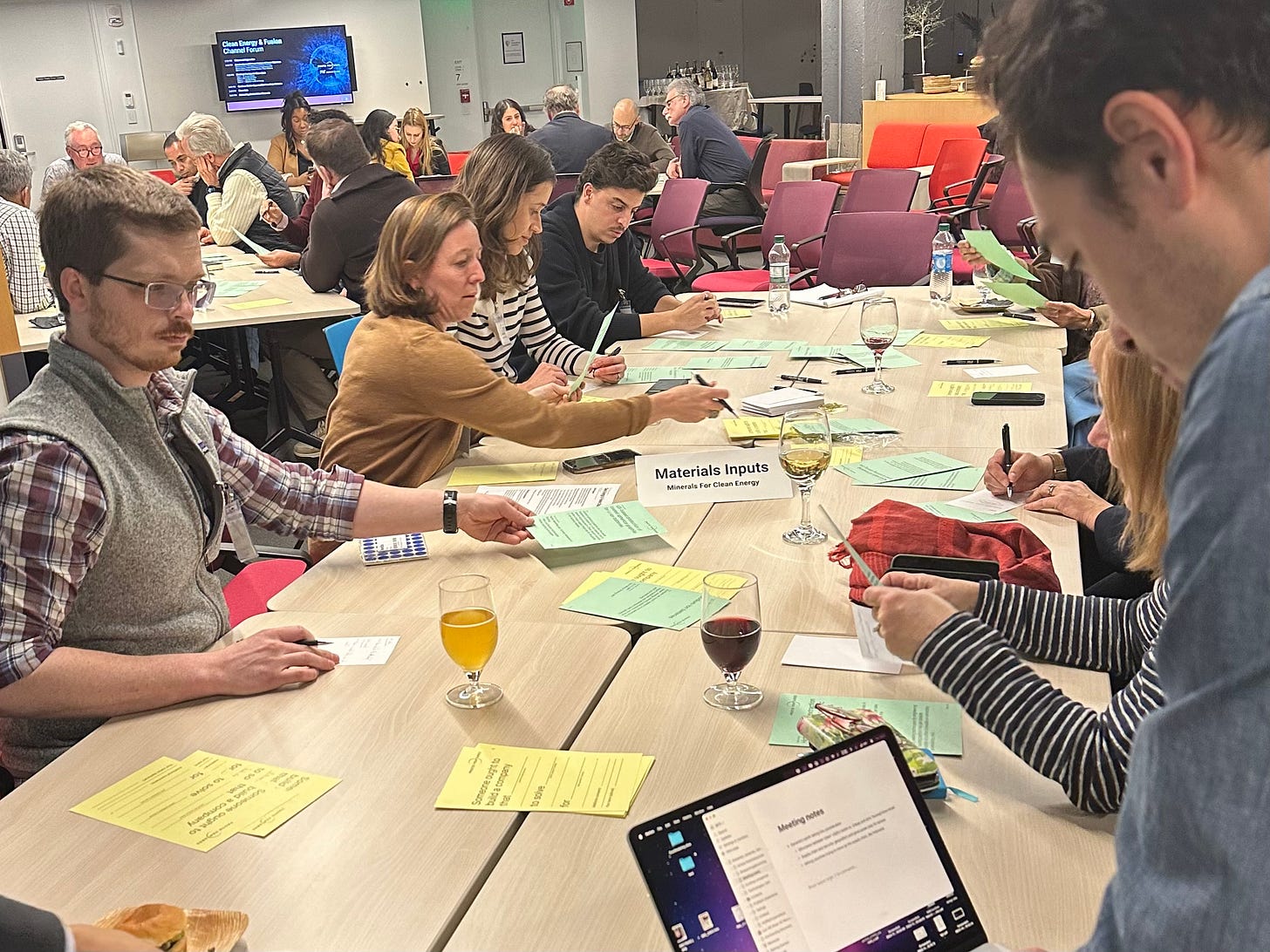
Armchair Reviews
Many participants enjoyed the structure of the forum.
“There aren’t a lot of things like this where a community is brought together, specifically around venture creation,” said Dan Recht, Managing Director of Activate Boston, a fellowship program for scientists becoming entrepreneurs. “Most often we’re either evaluating or interacting with people who’ve already started ventures or interested in starting ventures, or more generally, working to make the ecosystem better, as opposed to working at this earlier stage of the technology transfer process. It’s fun to be there.”
Emily Knight, President of The Engine Accelerator, was especially impressed with how the forum provided a safe space for experts on all sides of the energy industry to talk about early-stage venture ideas.
“Even though there were investors here, it wasn’t full of investors saying yes or no. Instead, they can say why and to what end or if it feels like a good fit,” said Knight. “For example, on one of the ideas, our comment was that it was the only thing that said cheaper, and that’s something you can only explore in a safe space.”
“I think what’s fun is for more people to join that end of the spectrum and to think earlier and what that looks like.”
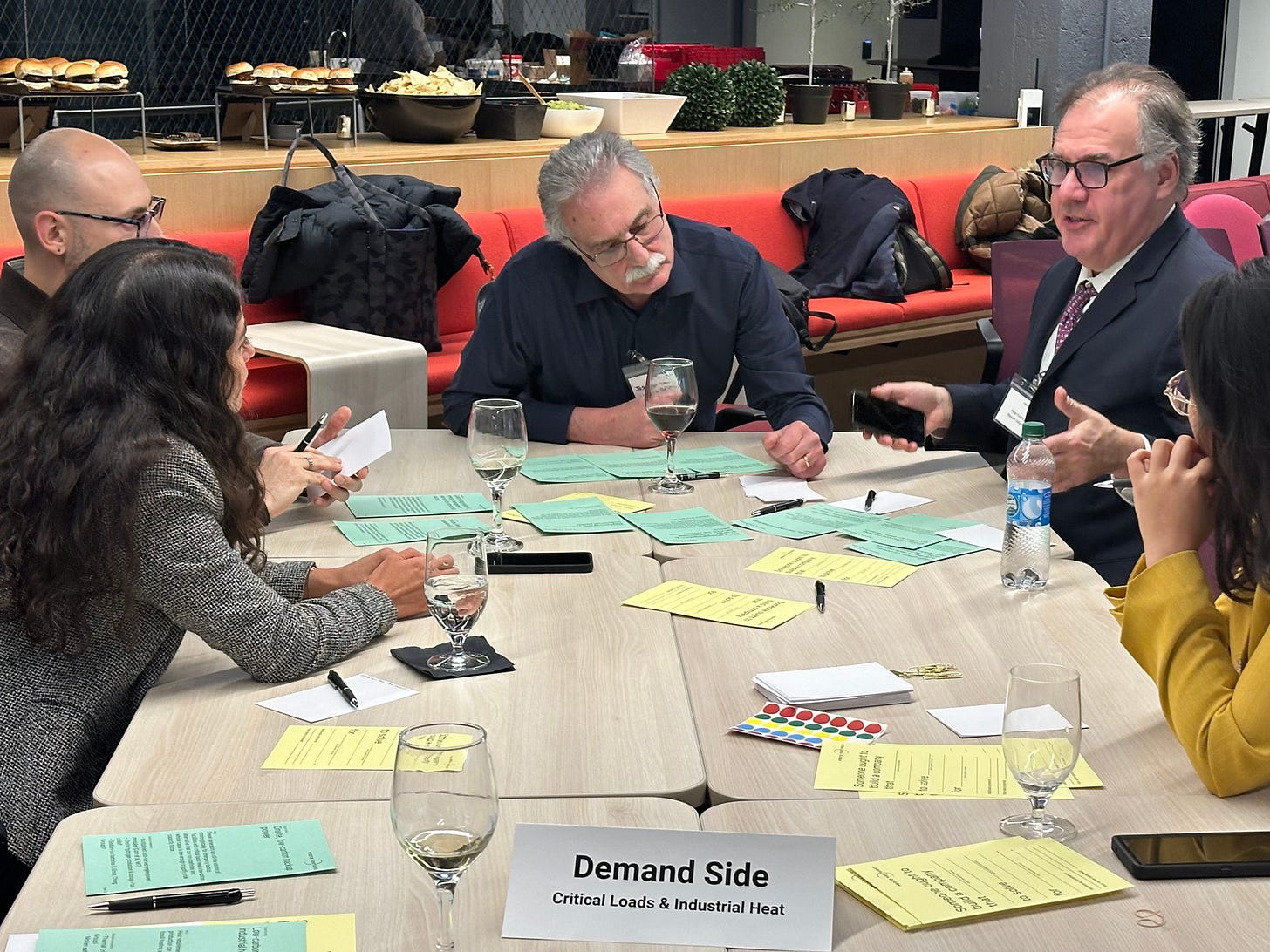
Amanda McGowan of the MIT Technology Licensing Office said she usually meets researchers in the very early stages of an idea, so she enjoyed discussions that included late-stage stakeholders.
“Hearing from researchers who are submitting their ideas versus hearing people who would actually buy the ideas or invest in them was also really interesting,” said McGowan, a senior technology licensing associate.
The forum was organized by Cohen-Tanugi, Managing Director Gene Keselman, and Faculty Director Dennis Whyte, with operational support from the MIT Office of Innovation.
Next Steps
Cohen-Tanugi will use the feedback from the forum to decide which venture ideas to move forward with. His next steps will be to form teams around the most promising research ideas and begin crafting business plans.